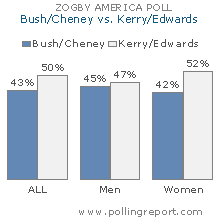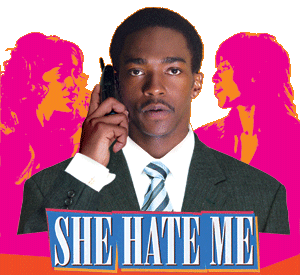FAIR ACTIVISM UPDATE: Eisner's Fantasyland Excuse for Censorship
FAIR ACTIVISM UPDATE: Eisner's Fantasyland Excuse for Censorship: "On the television network that his company owns, Disney CEO Michael Eisner dismissed the idea that forbidding Disney subsidiary Miramax to distribute a controversial new documentary by Michael Moore was a form of censorship. 'We informed both the agency that represented the film and all of our companies that we just didn't want to be in the middle of a politically-oriented film during an election year,' he told ABC World News Tonight (5/5/04), referring to Moore's Fahrenheit 911, which examines the connections between the Bush family and the House of Saud that rules Saudi Arabia.
On its face, Eisner's statement will have a chilling effect. A major movie studio with an announced policy of only releasing apolitical films, in an election year or any other year, will discourage filmmakers from tackling important themes and impoverish the American political debate. (That Moore and Miramax were given advance warning of this policy hardly mitigates its censorious impact.)
But Eisner's statement cannot be taken at face value, because Disney, through its various subsidiaries, is one of the largest distributors of political, often highly partisan media content in the country-- virtually all of it right-wing.
So what is the real reason it won't distribute Moore's movie? The explanation that Moore's agent said he was offered by Eisner-- that Disney was afraid of losing tax breaks from Florida Gov. Jeb Bush-- is more persuasive than Eisner's obviously false public rationale. But more relevant may be Disney's financial involvement with a member of the same Saudi family whose connections to the Bush dynasty are investigated by Moore. Prince Al-Walid bin Talal, a billionaire investor who is a grandson of Saudi Arabia's King Fahd, became a major investor in Disney's Eurodisney theme park when it was in financial trouble, and may be asked to bail out the troubled project again.
Whatever the true motive of Disney's decision to reject Moore's film, it's not the one that Eisner and other company spokespersons are advancing in public. Journalists covering the issue should go beyond Disney's transparent PR stance and explore the real motivations involved.
"

 Song for Cindy Sheehan Video
Song for Cindy Sheehan Video




































 Madeleine BAROUKHEL-MOUREAU
Madeleine BAROUKHEL-MOUREAU 




























0 Comments:
Post a Comment
<< Home